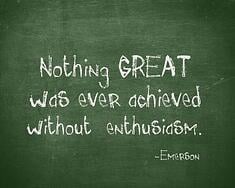
Executive at a crossroads
Lets call him Jesse. His story is a hypothetical example, but one that is not uncommon. Jesse has done all kinds of great things. Wonderful quantifiable achievements. And in several industries IT, Manufacturing, Consulting. Clearly, hes loaded with talent.
So, hes 45 or thereabouts. And he wants to apply at the VP level for positions that might come up in any of those fields. The trouble is, is it too late for that?
When is he deemed to be too far along in his career (code for too old) to capture a senior management position in any of those fields?
Talk of transferable skills is everywhere in media stories about job search. This idea is offered as a panacea for how to get a job in a different field than the one you're experienced in.
Dont get me wrong! Im a believer that many people could successfully cross industries and even be more effective because they are deeply familiar with more than one sector.
But thats the truth from the individuals point of view.
The truth is the common faith in the transferable skills idea most likely isnt going to hold any water from the perspective of the hiring authority or recruiter any more, at the executive level. And this is, in part, because the whole world of candidate selection has changed.
Before 2009 or so, the candidate pool was pretty much limited to the recruiters contacts, referrals, and perhaps people who had posted their resumes on a job board or corporate website.
But, since LinkedIn has become a premier database of professionals, recruiters now have access to profiles of both unemployed and employed executives. And I have heard recruiters in two panel discussions say that they are now able to hire candidates who possess 10 out of 10 of their requirements. The old, pre-LinkedIn number was 7 out of 10.
What this means for Jesse is clear. If the recruiter can find someone who has 25 years of experience in one industry, and probably is even more narrowly specialized in the desired industry niche, that person is going to be selected over the executive who has 7 years in 3 different industries.
So, if you are 35 and thinking about your next job, know that the industry where you land may well determine the industry you will reside in professionally for decades to come. It will simply be too difficult to switch industries at the more senior levels.
This is not to say that its impossible. If you are able to tap exceptionally strong, well-placed personal connections or if you are a well-known superstar you may be able to make such a move at 35 or even 45.
But I encourage my clients to commit to an industry as soon as they are able. Ideally 30, 35. If an executive is 45 and has split experience between 3 sectors, I encourage that individual to strengthen his presentation of his most recent experience and go after positions in that field. And this is the advice I would give to Jesse.
So the word to the wise today is: play the field if you want to in your twenties, but settle down in your 30s. Dont count on your skills transferring to get you a job. Develop the core, desired skills that recruiters will be requiring. Keep your eye on your goal a couple years down the road and manage your career accordingly.


 Credit to
Credit to 

 Image courtesy of jscreationszs
Image courtesy of jscreationszs
 If you are vying for the top technology job in an organization, your resume has to follow best practices for writing executive resumes. But CIOs potentially face land mines that other C-level execs don't have to worry about. Here are seven of them:
If you are vying for the top technology job in an organization, your resume has to follow best practices for writing executive resumes. But CIOs potentially face land mines that other C-level execs don't have to worry about. Here are seven of them:


